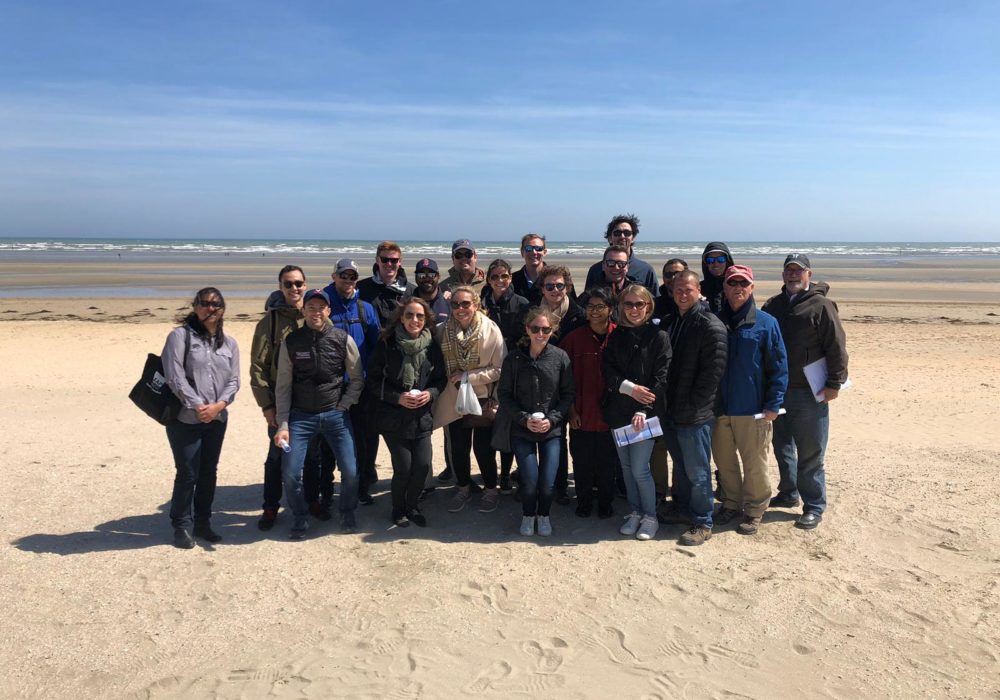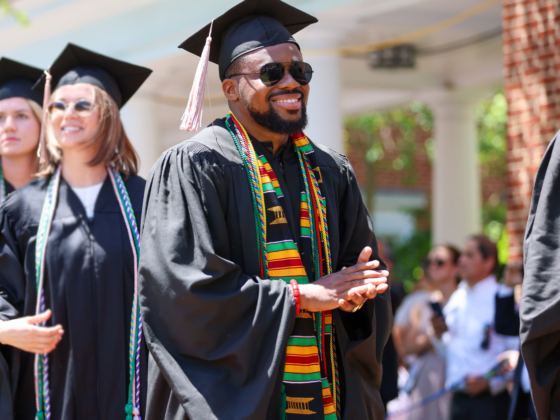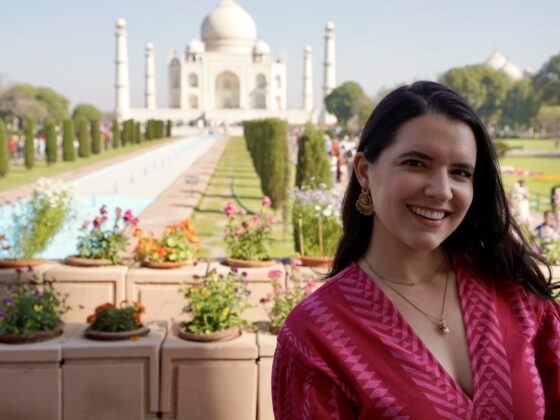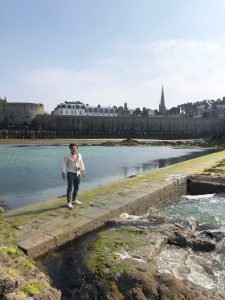 Alexander Spencer, originally from Boston, is a rising second year student at Darden. He returned to Boston this summer to intern with Toast, a fintech software company. Before starting his degree at Darden, Alexander earned his Bachelor’s degree at Harvard University and worked in venture capital and e-commerce. Alexander took a few minutes to share his thoughts on the Darden Worldwide Course to Normandy this May. In his own words (and photos):
Alexander Spencer, originally from Boston, is a rising second year student at Darden. He returned to Boston this summer to intern with Toast, a fintech software company. Before starting his degree at Darden, Alexander earned his Bachelor’s degree at Harvard University and worked in venture capital and e-commerce. Alexander took a few minutes to share his thoughts on the Darden Worldwide Course to Normandy this May. In his own words (and photos):
What drew you to the Global Topics Course in Normandy?
The opportunity to go to Normandy for the 75th Anniversary of D-Day is a once in a lifetime opportunity. The invasion of Normandy by the Allies was one of the most significant events of the 20th century and its impact is still felt today. Both of my grandfathers, who are in their late nineties were GI’s and played a part in the invasion. It was a rewarding experience to speak with both of them ahead of the course, hear their experiences, and integrate their knowledge into my presentation and class experience.
What did you learn about leadership on this course?
The Allies were a diverse group of countries that had to work together to successfully plan the largest amphibious invasion in the history of the world. It took an extreme amount of coordination between the principal Allies on the Western Front, the U.S., U.K., and Canada, but also with resistance fighters and troops from Australia, Belgium, Czechoslovakia, Denmark, France, Greece, the Netherlands, New Zealand, Norway and Poland. These groups had differences in language, culture, and resources and it took the extraordinary level of leadership between the military high command, government officials, and private sector leadership to plan the invasion. It also took an high level of coordination between the Army, Navy, and Airborne operations to successfully coordinate together. One element of leadership that was critical was attention to detail, because ignoring anything including the weather, tides, wind, or maps could result in more causalities. It was also critical to maintain clear lines of communication because the men on the front lines typically knew more about the battle conditions than the men planning from behind the lines.
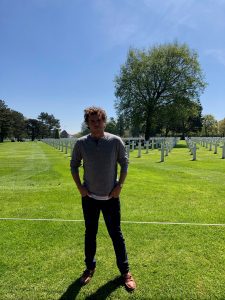 What were your key takeaways with regards to operations and coordination across complex organizations?
What were your key takeaways with regards to operations and coordination across complex organizations?
One of the main takeaways from the trip was that U.S. Army was a learning organization – meaning that they learned lessons from both their experiences earlier in the war and once they landed in Normandy. For example, streamlined communication between the Air Force, Central Command in England, and tanks on the ground only happened once they had landed on the beaches and saw the necessity of good communication in order to break through the tough German lines. Another takeaway is that the Allies were remarkably innovative throughout the entire invasion process. They successfully deceived the German high command by creating a fake army in Northern England and Norway and drawing troops away from the invasion beaches. They also invented the Phoenix Caisson, concrete blocks that allowed the Allies to build a manmade harbor around the beaches.
How did the course location/historical readings/context of the Normandy invasion enhance or facilitate your learning?
While I enjoyed the Normandy readings (Anthony Beevor’s D-Day book is fantastic), I mostly enjoyed just googling more information about the invasion. There is so much to learn about one of the most consequential moments in human history. There are also so many amazing stories about courage and grit that define the Greatest Generation and their sacrifices.
Could you share a little bit about your experience traveling with a group of Darden classmates and faculty? How did being with them enhance learning/growth/connections for everyone?
Every one of my classmates on the trip (including my wife, a fellow Darden student) did an amazing job with their presentations and handouts. It was such a great learning experience to hear them go in depth on one battle or topic and work through the leadership implications and business applications. It was great to have the companionship of my Darden classmates as we went to some extremely solemn and reflective sites like the Omaha Beach Cemetery. We also had a great time visiting Mont Saint Michel, Bayeux, St. Malo and Paris. The evenings after our classes were a lot of fun too.

